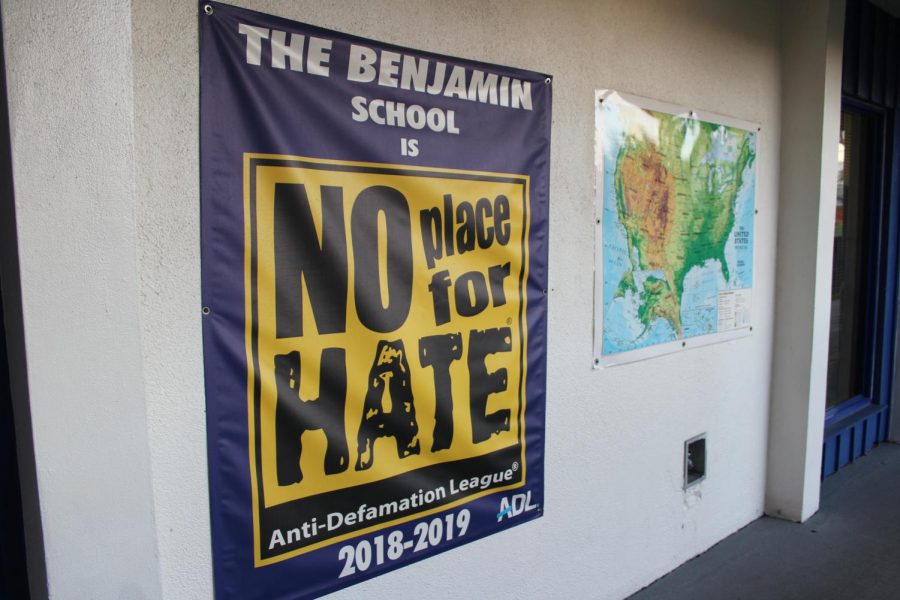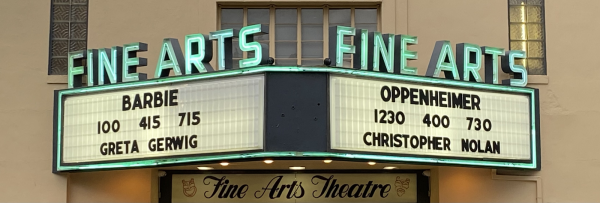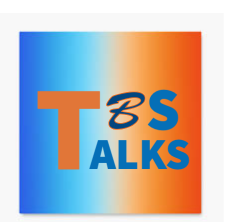Administration Responds Swiftly to Antisemitic Symbol
With the administration’s swift response to the hate symbol drawn on campus, the Middle School is living up to its designation as a No-Place for Hate, a distinction it has earned every year since 2014.
Antisemitism, the hostility or prejudice against Jewish people, is still a big problem in today’s society. When a swastika was found recently written on a desk in a middle school classroom, TBS made sure to address this problem. An assembly was held during study hall, and Head of Middle School Mr. Charles Hagy, as well as Head of School Mr. David Faus, talked to students about the problem. Both administrators explained the history of hate behind the symbol, and Mr. Hagy emailed a letter to TBS parents explaining what happened and the steps the administration had taken to address the problem. This included pinpointing the student, suspending the individual, and then making sure the student participated in sensitivity training that consisted of several videos, articles, and responses surrounding the topic of hate, hate symbols, and antisemitism.
“This isolated incident does not reflect the typical excellent behavior of our middle school students and our Benjamin community; however, even just one act of antisemitism must be addressed immediately,” wrote Mr. Hagy in the letter.
The Benjamin School has always been big on educating students about antisemitism and the Holocaust, which is why the administration wanted to swiftly address this act of intolerance. Every year, the ADL, also known as the Anti-Defamation League, is invited to the campus to address students about the effects of bullying and hate, as well as the seriousness of hateful symbols such as the one found on the desk. Because the School makes time for students to learn about such things, and because of its efforts – especially through the advisory program – to encourage empathy, the ADL has named The Middle School a No Place for Hate for the past several years.
“Antisemitism is without a doubt a problem today, said Rabbi Alon Levkovitz, head Rabbi at Temple Beth Am. “The Anti-Defamation League (ADL) monitors cases of antisemitism, as well as other hate crimes against other groups, [and] shows a major increase in antisemitic cases in the past years,” he said.
Students recognize that antisemitism is still a large problem today, and the effects it has on Jews.
“I think [antisemitism] is a problem because everyone should be treated equally and with respect, and have the same rights and privileges,” said seventh grader Gavin Venoff. “It can make Jewish people feel left out or nervous to practice their religion in front of other people.”
“As a society, we have normalized these actions, for instance, the stereotype that Jewish people have large noses,”said eighth grader Rebekkah Merkel. “Antisemitism, for many Jews, creates a sad and uncomfortable environment to be in. Being around that type of hate is damaging to your soul, hearing people make hurtful remarks about your beliefs.”
“I do think antisemitism is still a big problem today, but it is getting better and improving over the years,” said eighth grader Sage Sorenson. “We should [continue to] teach kids to be accepting towards others, and teach them about others cultures and beliefs.”
The Benjamin School has done and continues to do exactly that.
“I feel that The Benjamin School does a good job teaching about antisemitism and the Holocaust,” said Sorenson. “The Benjamin School has taught [students] to accept others’ religions and be open to others’ ideas.”
“Benjamin has done a great job teaching about The Holocaust,” said Venoff. “For example, last year we learned about The Diary of Ann Frank, and our teachers guided us in a discussion that made everyone feel that the Holocaust was a horrible event and should never happen again.”
History Department Chair Mrs. Anne Franzen believes teaching about the Holocaust is important for more than just historical purposes.
“We feel that teaching students about the Holocaust is a way to use curriculum to expand student empathy,” she said. “Students have the opportunity to learn about the roots of hatred and antisemitism through historical lessons. The Benjamin School takes learning further than just learning. [The students] see how people in history made the wrong choices, and learn ways to make better choices in their own lives and in the future.”
While the School has done a good job in trying to create a culture of kindness and empathy, it’s still up to the students to take the instruction seriously.
“The Benjamin school has done a good job teaching about topics like these, but the enforcement of such practice is not as good,” said Merkel. It is not the fault of the School, but more on the students here who take such topics as jokes.”
“Education makes a big difference,” said Levkovitz. “Jews and non-Jews should call out people when they make an antisemitic comment or tell an inappropriate joke. Sometimes the comment is a result of ignorance rather than malice, but it is still not okay, and gives us an opportunity to educate others,” he said.
Actions like the hate symbol being drawn are a rare, almost unheard of, occurrence at Benjamin. It does, however, seem as if now is the time to figure out how to combat the unfortunate existence of these beliefs.
“We should teach kids to be accepting towards others, and teach them about others’ cultures and beliefs,” said Sorenson.
“We can prevent [antisemitism] by teaching people that everyone is equal,” and all people are the same,” said Venoff. “One way would be to teach people to respect all religions. It would also be helpful if people could learn about the Jewish culture and for all of us to be proud of their culture and religion.”










